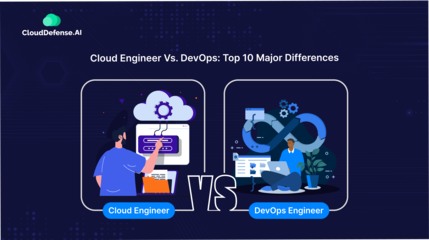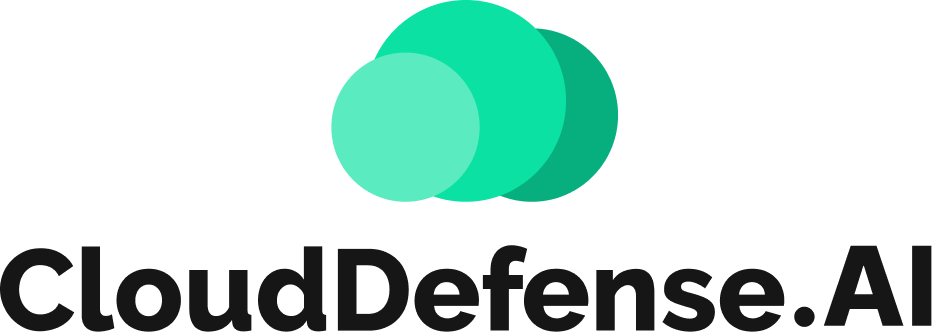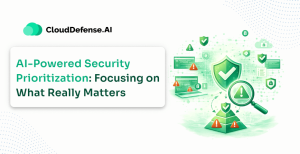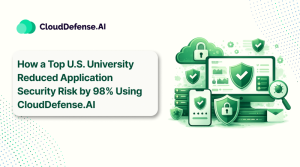In a rapidly evolving cloud computing landscape, two job titles have emerged as significant choices for many IT professionals; cloud engineering and DevOps. These two job titles currently serve a pivotal role in modern IT infrastructure, and they are the ones that are also driving the development and management of software applications.
Many people often associate cloud engineering with DevOps and cloud infrastructure. Although they are intertwined in their goal to improve IT operations, they have different roles to perform with a different focus.
DevOps and cloud engineering have many overlapping responsibilities and skills, but they perform differently. This guide will go over the key differences between cloud engineers and DevOps and clear up any confusion you may have about these job roles.
Before we dive into the main difference, let’s first define;
Who is a Cloud Engineer?
A cloud engineer is a software professional who specializes in developing, designing, and managing cloud infrastructure and applications based on it. Cloud engineers cultivate a deep understanding of cloud computing technologies, network infrastructure, and software development for developing cloud systems.
It is they who play a pivotal role in planning and managing different cloud projects for their organization and also ensuring the scalability and performance of the cloud application. These individuals are proficient in working with most cloud technologies and platforms, including all hybrid environments.
Operation teams, cloud security individuals, developers, and stakeholders of an organization work closely with their cloud engineers to implement appropriate cloud solutions for catering to ever-expanding business requirements.
They may be considered a subset of DevOps, but they are accountable for numerous primary technological functions in the cloud. Moreover, they don’t get involved with standalone applications based on legacy; instead, they focus on cloud platforms and services that can be utilized across the web.
Who is a DevOps?
DevOps stands for Development and Operations, which elaborates on the process of reducing the software development cycle and shifting the delivery of high-quality applications.
Basically, it acts as a bridge between IT operations and software development by automating the software development works. DevOps involves continuous delivery tools, cloud services, modern methodologies, and various cloud-related technologies for delivering different types of products and services.
DevOps professionals specialize in creating automated processes (pipelines) where all the development code can be automatically tested, built, and deployed. Tools like Spinnaker and Jenkins are widely used by these engineers for deploying and automating CI pipelines.
They work with operation and development teams to automate processes and achieve continuous integration, monitoring, and delivery. They have a vast knowledge of a wide range of technologies and tools, including automation tools and cloud computing. DevOps professionals are mainly responsible for building an efficient and effective development process for software.
These individuals are not only responsible for introducing processes but also strategies that help in balancing requirements throughout the SDLC (Software Development Lifecycle). It is one of the most lucrative job roles and is widely pursued by many professionals throughout the world.
Role of Cloud Engineers
A cloud engineer encompasses varied types of cloud-focused roles, and they are involved in performing a wide range of tasks on a routine basis. Here are some vital roles performed by cloud engineers;
- Cloud engineers perform the role of cloud architects, where they are tasked with maintaining the proper functioning of cloud infrastructure. They are also responsible for looking after the configuration and deployment of web applications.
- Working as a cloud software developer is another significant role for cloud engineers. They are involved in building and maintaining cloud applications along with their features, functions, and databases.
- Cloud engineers can work as automation engineers, where they emphasize automation and integration during application development and coding workflows.
- They work with all the operation teams, security teams, and related stakeholders to cater to the modifications needed to ensure the smooth functioning of the current systems.
- They perform the role of cloud security engineer, where cloud engineers help in building and maintaining features to provide optimum security to cloud platforms. One of the most significant responsibilities of a cloud engineer is that they have to take care of all the confidential data of their organization and clients stored in the cloud.
- They take the role of cloud network engineer, where they have to manage and support the network infrastructure. They have to ensure the seamless functioning of the connection between service providers and clients.
- Cloud engineers of an organization have to develop and implement cloud monitoring strategies that will ensure the smooth functioning of its applications and related services. They also have to analyze and mitigate flaws that can disrupt the cloud service.
- Cloud engineers need to periodically evaluate the cloud infrastructure and strategize plans to improve the performance of the cloud.
Role of A DevOps Engineer
Like cloud engineers, DevOps engineers also have many vital roles in an organization that sets the course of an organization’s growth. Here are some roles of a DevOps engineer;
- DevOps engineers hold pivotal roles within an organization’s software development, overseeing the implementation of DevOps practices and processes.
- They work as automation experts in an organization where they are responsible for automating software development processes and orchestrating tools.
- DevOps engineers also carry out the role of software developers, where they build, maintain, and deploy web-based applications. They are a part of the development process from start to finish.
- They also serve as cloud architects, where they look after the cloud infrastructure that runs the software. They continuously fine-tune the integration to ensure the software runs at its optimum performance.
- A software tester is another essential role of a DevOps engineer; they test the working of software and ensure they work seamlessly without any bugs. They basically run tests to check the efficiency and effectiveness of the software and make sure it can run in any situation. Through testing, they identify flaws, and, depending on that, they draft code to solve the issues.
- DevOps engineers are the ones who continuously monitor the security of the cloud infrastructure and software. They deploy cybersecurity measures through platforms like CloudDefense.AI to continuously perform vulnerability and risk assessments.
- They are responsible for building and integrating tools that can reduce the occurrence of errors and improve the customer experience by a large margin. In addition, they design various strategies and procedures to ensure adequate system maintenance and troubleshooting.
Similarities Between Cloud Engineers and DevOps
Cloud and DevOps engineering may differ from each other in many ways, but they do share certain similarities that include;
Using Cloud Platforms and Services
Cloud engineers and DevOps professionals share common ground when it comes to utilizing cloud platforms and services. In their organizational roles, they both leverage prominent providers such as Amazon Web Services, Google Cloud Platform, and Microsoft Azure. Furthermore, they employ similar tools for enhancing and managing their respective cloud infrastructures.
Shares Similar Cloud Knowledge
Both cloud engineers and DevOps professionals possess a deep knowledge of cloud computing methodologies and technologies. They basically share the same base knowledge regarding web application development and management. They also have a deep understanding of cloud security to make sure the cloud infrastructure is free from any vulnerability.
Managing Cloud Infrastructure
Whether cloud or DevOps engineers, both are responsible for managing the cloud infrastructure; they work to ensure it is free from any flaws. They make sure the cloud infrastructure has the capability to scale according to the requirements while managing the cost.
Works Towards Continuous Improvement
Both DevOps and cloud engineers share the same goal of working towards continuous improvement of the cloud applications and services they offer. They make similar efforts to optimize the development process, boost system performance, and follow best practices that will help achieve better efficiency in software development and cloud management.
Emphasizing On Automation
Although DevOps engineers are more involved in the automation of processes, cloud engineers also emphasize automation to boost overall efficiency and provide structural scalability. Both work on processes and tools for automation to boost web development and cloud management. They make use of IaC frameworks, deployment automation, and configuration management to gain consistency and repeatability in cloud infrastructure setup.
Differences Between Cloud Engineers and DevOps

Both DevOps and cloud engineers fall in the same industry, and cloud engineering is basically a subset of DevOps. Despite having similarities, they are different in many ways. Here is the comparison chart outlining the dissimilarity between cloud engineers and DevOps engineers;
| Role | Cloud Engineers | DevOps Engineers |
|---|---|---|
| Focus | Cloud engineers focus on cloud infrastructure, security, and management. | DevOps engineers focus on software development, operations, and QA of the application or services. |
| Responsibilities | Responsible for designing and implementing cloud solutions. Optimizing cloud resources and managing cloud infrastructure. | Responsible for collaboration between development and operations teams. Manage deployment pipelines and automate deployment processes. |
| Skill Set | Highly proficient with cloud platforms (e.g., AWS, Azure, GCP), IaC tools, security best practices, and monitoring tools. | Skilled in tools like Ansible, Jenkins, Docker, Python, IaC, version control, CI/CD pipelines, and containerization. |
| Impact on Security | Discover, assess, and mitigate vulnerabilities in infrastructure and applications. Implement cloud-specific security measures. | Secure applications from the beginning, implementing security as code or through integration. |
| Collaboration | Work closely with DevOps and development teams. Interact with infrastructure teams for management. | Collaborate with development, operations, and quality assurance teams. |
| Job Growth | Slightly lower growth compared to DevOps. Increasing as organizations shift to the cloud. | High job growth, increased demand for DevOps professionals in recent years. |
| Monitoring | Monitor cloud resources, identify and mitigate vulnerabilities. | Monitor entire application delivery process for reliability and performance. |
| Software Lifecycle | Involved in certain parts of the software development lifecycle. | Involved from start to finish in the software development lifecycle. |
| Average Annual Salary | $120,000 to $150,000 (average) | $115,000 to $140,000 (estimated) |
| Hiring Consideration | Hired based on knowledge and experience in specific cloud platforms. | Valued for knowledge and experience with a variety of tools and technologies. |
Before ending this guide, we want you to take a glance at some FAQs that will be helpful for you.
FAQs
1. Which is better: cloud engineer or DevOps engineer ?
Both cloud and DevOps engineers serve as essential pillars of an organization, and they play many roles that are crucial in their fields. So there is no clear “better” choice between the two from an organization’s perspective. From a career point of view, the decision depends upon your strengths, skill set, and interests.
2. Is cloud computing part of DevOps?
Cloud computing is an integral part of DevOps because it furnishes them with the infrastructure, resources, and tools that enable the principles and responsibilities of DevOps to be implemented. Cloud computing is associated with almost all stages of DevOps, starting from automation and continuous automation to scalability and deployment of applications.
3. Does a cloud engineer need coding?
Yes, a deep knowledge of coding is required while pursuing cloud engineering. The level of expertise in coding may vary according to the responsibilities. Coding helps cloud engineers in many ways, including managing infrastructure as code, scripting processes, automating deployment processes, and building solutions for optimization.
4. What is the difference between AWS Cloud and DevOps?
Amazon Web Service is a cloud platform that is responsible for providing various cloud services, including hosting applications and services. Whereas, DevOps is a set of methodologies and practices that emphasizes automation, managing application deployment, and integration of IT operation and application development.
5. Are cloud engineers and DevOps engineers the same?
Cloud engineers and DevOps engineers might be using the same platform and field of work, but they are not the same. Cloud Engineers focuses on managing and implementation of cloud infrastructure. DevOps, on the other hand, focuses on streamlining software development processes through automation and enhancing collaboration between operations and development teams.
6. What are the core competencies of a cloud engineer vs. a DevOps engineer?
A cloud engineer has numerous core competencies, like deploying and managing cloud infrastructure, working on cloud services, and optimizing security and performance. DevOps engineers have their core competencies in automating development and deployment processes, ensuring collaboration, automating CI/CD pipelines, and many others.
Conclusion
Understanding the roles of cloud and DevOps engineers can be confusing, but we hope our guide on cloud engineer vs. DevOps engineers will solve your confusion. Through this guide, we have provided a detailed understanding of cloud engineering and DevOps so that you can easily differentiate between them.
We have put forward all the available information that will provide you with a clear understanding of the dissimilarities between these two vital job roles. Although they have different responsibilities and prospects, they are highly important for modern organizations operating on cloud platforms to operate smoothly without any issues.







